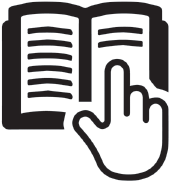THE IGNITE RESOURCE GUIDE
This chapter outlines some resources for further exploration to help you get better at igniting ideas and developing the mindset of creativity.
RESOURCE GUIDE
Whether creativity comes naturally to you or not, developing practices to help open your thinking and make you more receptive will enhance your ability to think laterally. This will help you to, be more divergent and see connections between different ideas. Here are a few additional resources and practices I have found useful.
- A Whole New Mind. For those of us who love practical ‘how-to’, as well as brain science and convincing arguments for why this is important, Daniel Pink’s book A Whole New Mind gives great tips and suggestions. He outlines six areas that we need to cultivate: design, story, symphony, empathy, play and meaning, with detailed ‘portfolios’ on how to develop each one. His newsletter is good, too: www.danpink.com
- Journaling. I have written journals, reflections on myself and life, since I was a young child and have found the practice of journaling, writing by hand in a notebook, as a source of great inspiration for new ideas. It also helps to stop, take note of what is occurring and build awareness of self, others and the world around us. I encourage everyone I teach to keep a journal. Here is a great site that will tell you everything you need to know to get started: www.journalingsaves.com/welcome/
- Creativity workshop. With the proliferation of online training programmes, learning about any subject that may be of interest is easy and cost-effective. One programme I particularly enjoyed on creativity was Elizabeth Gilbert’s Creativity Workshop on Udemy: www.udemy.com/elizabeth-gilberts-creativity-workshop/
- Creativity test. Want to find out how creative you are? Complete the Torrance Tests of Creative Thinking (TTCT): www.ststesting.com/ngifted.html
- Right- and left-brain assessment. While there are lots of freebies to test how right or left brained you are, if you want to have a comprehensive and validated assessment, this is the company to visit: www.herrmannsolutions.com
- 50 creative websites. Here is a fabulous resource for 50 websites that will inspire creativity www.creativeboom.com/resources/50-of-the-best-websites-for-daily-inspiration/
- Mind tools. This site is a great resource for all manner of thinking tools. They also have a resource guide specifically aimed at boosting creativity in self and in teams: www.mindtools.com/pages/main/newMN_CT.htm
- Learn to draw. Never thought you could draw? Betty Edwards can teach you how: http://drawright.com
- Social network theory. For more information about Dr Karen Stephenson’s work, visit www.drkaren.us
FURTHER READING
There are numerous books on creativity, here are some that I have enjoyed and found useful:
Buzan, T. (2003) Head First: 10 Ways to Tap into Your Natural Genius. Thorsons.
Catmul, E. (2014) Creativity, Inc.: Overcoming the Unseen Forces That Stand in the Way of True Inspiration. Random House.
Csikszentmihalyi, M. (2013) Creativity: Flow and the Psychology of Discovery and Invention. Harper Perennial.
Jarvis, J. (2011) What would Google Do? Reverse-Engineering the Fastest Growing Company in the History of the World. Harper Business.
Kahneman, D. (2013) Thinking, Fast and Slow. Farrar, Straus and Giroux.
Michalko, M. (2006) Thinkertoys: A Handbook of Creative-Thinking Techniques. Ten Speed Press.
Pink, D. (2008) A Whole New Mind; Why Right Brainers Will Rule the Future. Marshall Cavendish.

